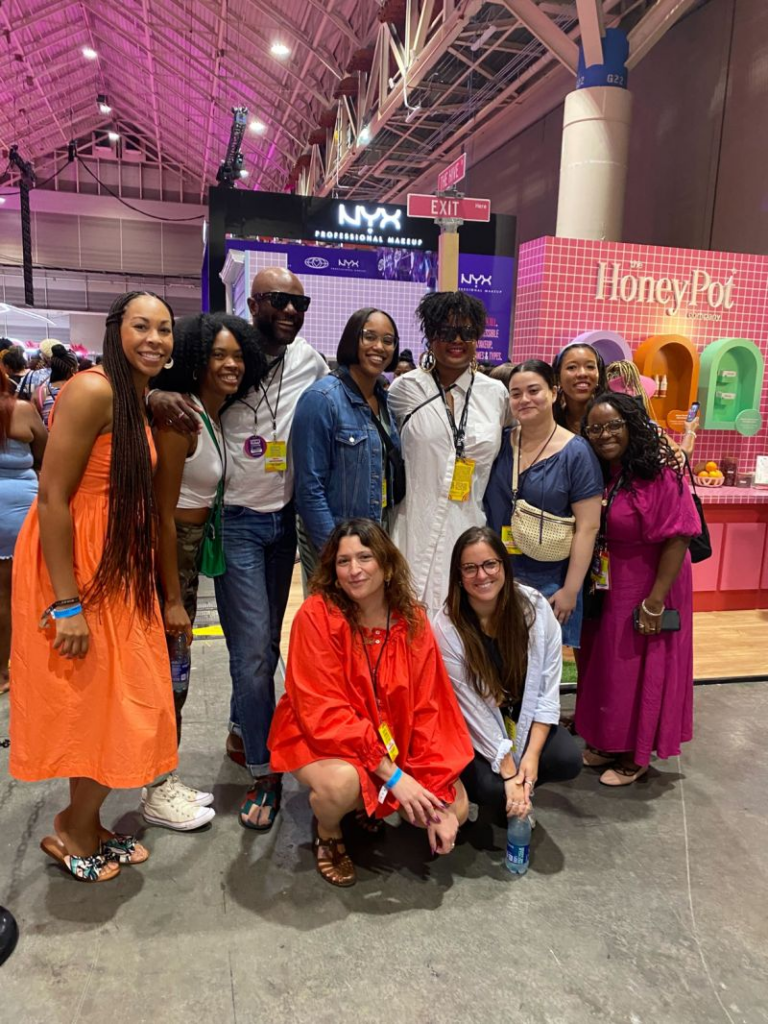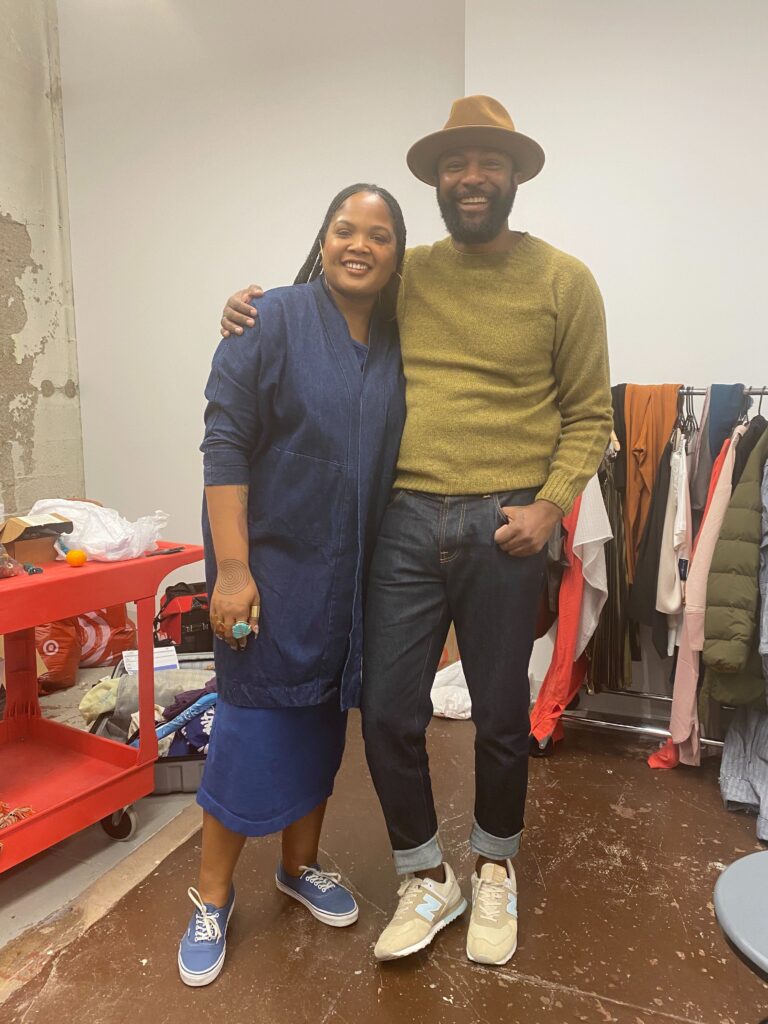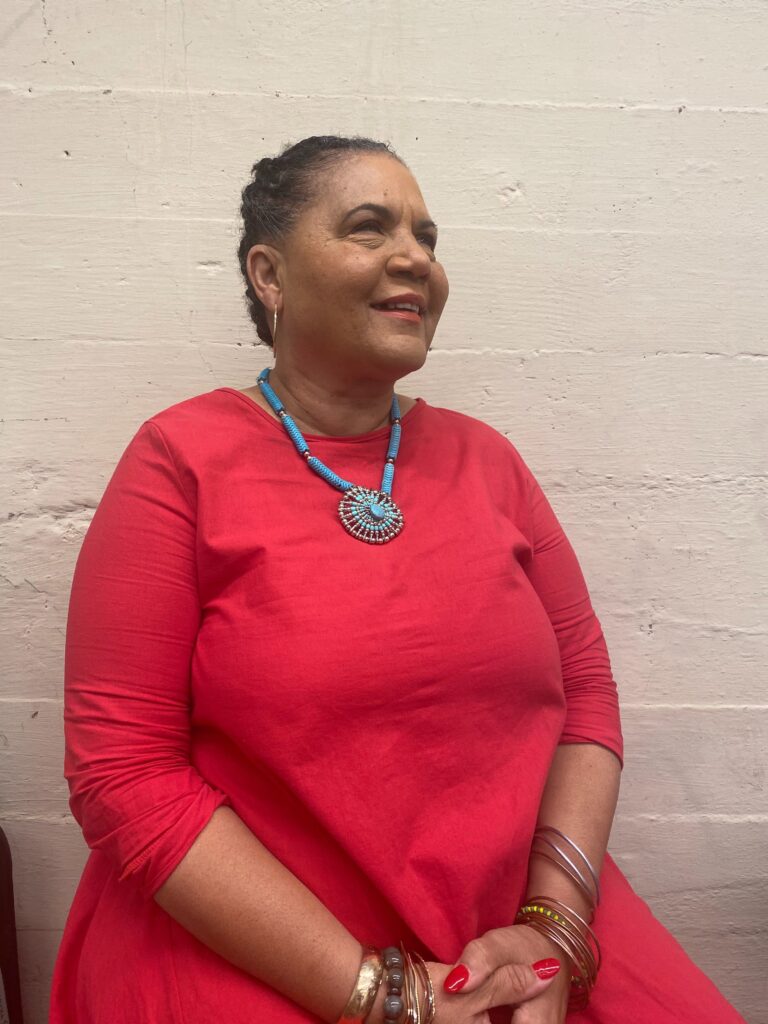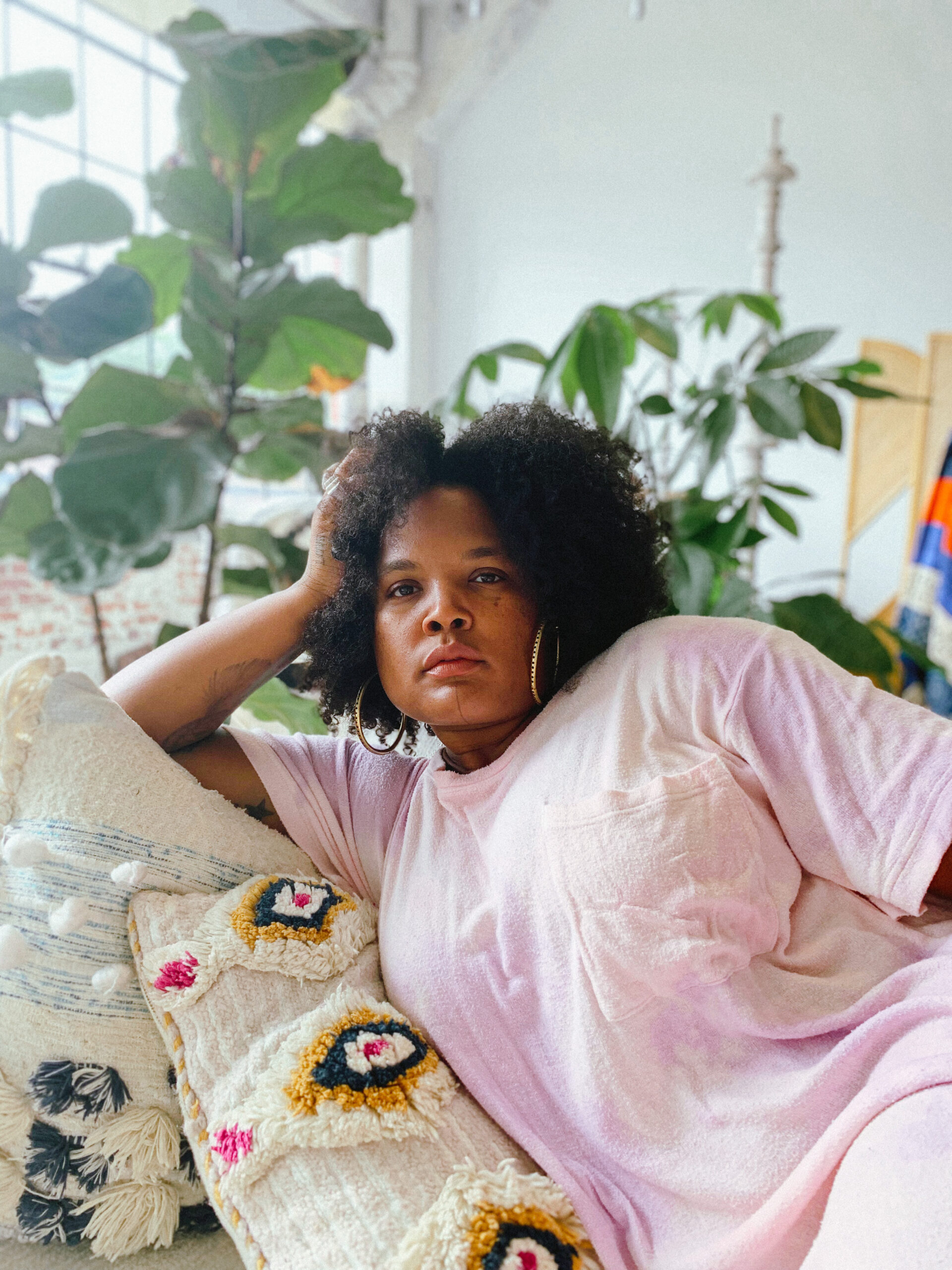Beatrice Dixon got the idea for The Honey Pot Co. after being visited by her grandmother in a dream. “[She] told me she had been walking with me and seeing me struggle,” Dixon tells Sweet July. “She’s always with me…I have an army of ancestors always with me.”
Dixon’s spiritual guidance has paid off. Since cooking up products in her kitchen and officially launching the brand in 2014, Dixon has transformed the personal wellness industry. The Honey Pot Co. is the world’s first plant-based feminine hygiene line, with everything from washes and wipes to supplements and menstrual must-haves. It is commonly referred to by beauty executives, venture capitalists, and customers as one of the most exciting Black-owned retail brands to watch, with 4.6 million customers nationwide and gross sales of $121 million in 2023. Amid such massive growth, Dixon recently built and led her team to a $380 million acquisition.
“There’s a soul to Honey Pot,” she says. “This isn’t just a business; this is a movement.”
Scaling a business that tackles the long-standing inequities in feminine and personal care requires a robust support system. For Dixon, this “business family” motivates her to pivot, innovate, and grow The Honey Pot Co. It includes diverse sources of strength: a close-knit leadership team, an intuitive coach, and even a friendship with Gwyneth Paltrow. Dixon tells Sweet July how she found the specific support she needed to continue changing the game.

Growing Pains and Shifting Needs
Before landing the coveted spot on Target shelves nationwide, Dixon and her small team were handcrafting products themselves. They managed to raise enough funds to pay the bills, but fulfilling a “friends and family” round proved crucial for scaling up operations to meet anticipated demand. By 2019, Dixon was able to raise $3.7 million in capital that included an investment from the New Voices Fund.
Dixon reached out to many people for support and advice—some were gracious with their time, while others wanted equity. “Many people were trying to take advantage, but that’s okay. It’s just a learning experience,” she says. “There are brick walls you run into, and there are walls you just go right through.”
Dixon’s day ones helped her break those walls down. Her “brother” Simon Gray, The Honey Pot Co ‘s co-founder and chief cultural officer, used his accounting and finance background to help manage the business. “We chose each other as family. We’re way more than just best friends,” she says. “He’s like my blood.”
Securing a $380 million investment from Compass Diversified wasn’t a walk in the park. Dixon describes the process as “remarkably hard and grueling.” She had to trust her decision-making abilities, lean on her intuition, and get support from her employees to acquire such an important partnership. “Your gut, mind, and heart got to be synced up,” she says.
The fundraising process, though challenging, made Dixon and her team much closer. It also highlighted that she would need different levels of support at every stage of her business. Dixon emphasizes the importance of adaptability. “You just can’t have the disciplines that you had before…things are constantly iterating and changing,” she says.
Investing in Self-Care
Dixon openly acknowledges the toll scaling The Honey Pot Co. has taken on her well-being. She admits neglecting self-care and sacrificing her personal wellness for the business. It also meant not being able to show up for her family in the ways she would have liked because she didn’t have the capacity. It took a lot out of The Honey Pot Co.’s 70-person team, too, as they all worked to acquire funds and run the business. “I couldn’t think about wearing cute clothes. I wasn’t thinking about shaving my legs,” she says. “‘What are we eating tonight?’ I have no idea.”
Dixon’s vulnerability resonates with many entrepreneurs who struggle to maintain balance. “I wrecked myself,” she admits. “I’m trying to get myself back together.” These days, Dixon turns to her network to support her well-being and ensure she stays healthy while growing the business. She leans on her mother, brothers, close friends, and many wellness professionals. This includes, for instance, having a housekeeping staff and chef; for Dixon, outsourcing household tasks is a necessity given her packed schedule.


“I understand how that may sound, but it is not a luxury for me,” Dixon explains. “I need it, because I don’t have time to think about what I’m eating. Even doing laundry can be hard when you’re on the phone all day and running around and traveling. Having a team of people that can support our household, and family and friends that have real love and pour into me is important.”
Dixon also seeks refuge in supportive communities and self-care practices. Every year, she attends the Expand retreat to surround herself with other women and non-binary entrepreneurs who can relate to her professional challenges. She has regular consultations with an intuitive coach to keep her energy in check. “I’m intuitive. I’m an empath, and I’m also a medium,” Dixon says. “That’s a lot while also being the face of a wellness brand that makes products for the intimate parts of someone’s body.”
Dixon feels particularly affected by the energy surrounding The Honey Pot Co., especially during big announcements, or if the company goes viral as it did in 2022, when customers reacted negatively to an ingredient change in the product. “I can feel all that energy pointed in my direction because it’s my face next to it,” she says. “I’m not complaining about it. I’m grateful for it, and that can be hard to maintain myself.”
Strengthening Familial Bonds
Many Black entrepreneurs face the burden of the “Black tax,” the pressure to financially support family and friends once they find success. “I know what it’s like [to hear] about somebody else’s success, and you know that they are in a position to potentially help you,” says Dixon. “I think it’s the right thing to ask. It’s just, ‘Are you asking from a place of trying to take, or are you asking from a place where you just need some help?'”
However, Dixon doesn’t mind providing for her family because of how they’ve supported her in the past and continue to support her with their love. “It’s okay for people to need something,” she says.” Now, can I handle that? Can I take that on? Sometimes I can, sometimes I can’t.”
Dixon reflects on her journey from homelessness to building a million-dollar business, and the countless odd jobs she took on to make a living, from babysitting to cleaning toilets. This instilled in her a belief in asking for help when needed. Although her family may not understand the weight of her responsibilities, Dixon affirms their love and prioritizes time with them.
“I want them to take care of me because I want to take care of them. That is a fluid thing,” she says. “I want to be treated with love and give love like everybody else.”
This feature is part of The Village Issue. Read more about the gamut of our most cherished relationships here.







